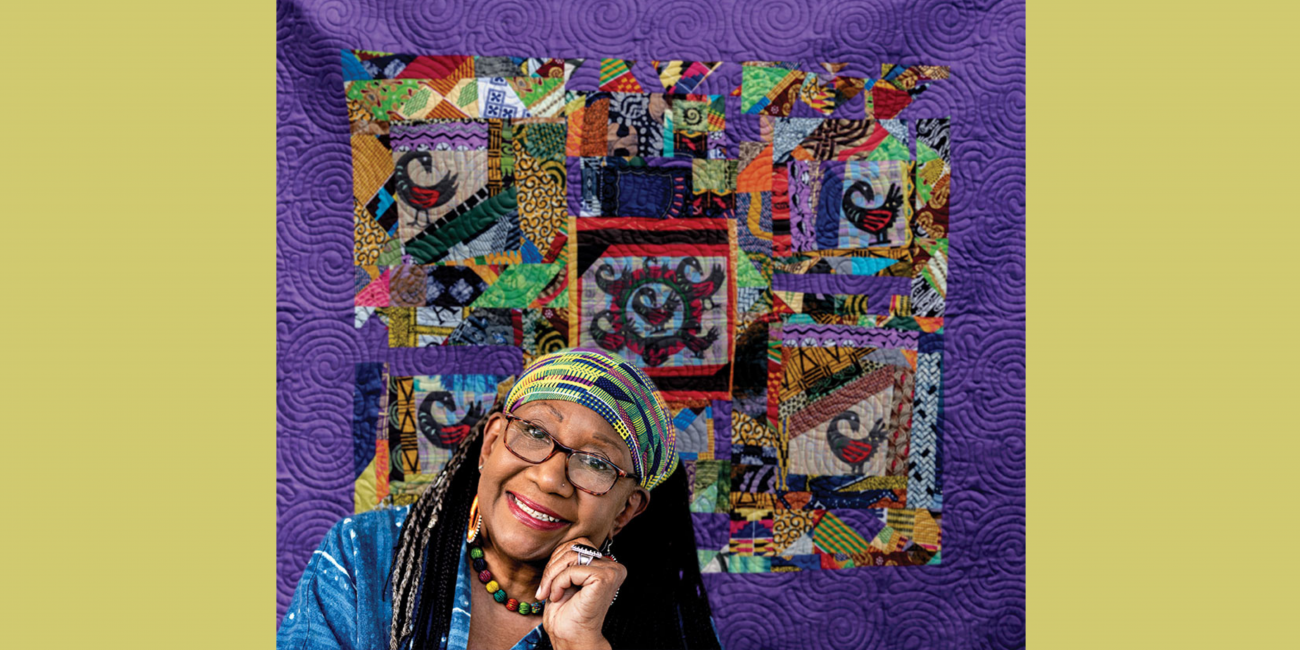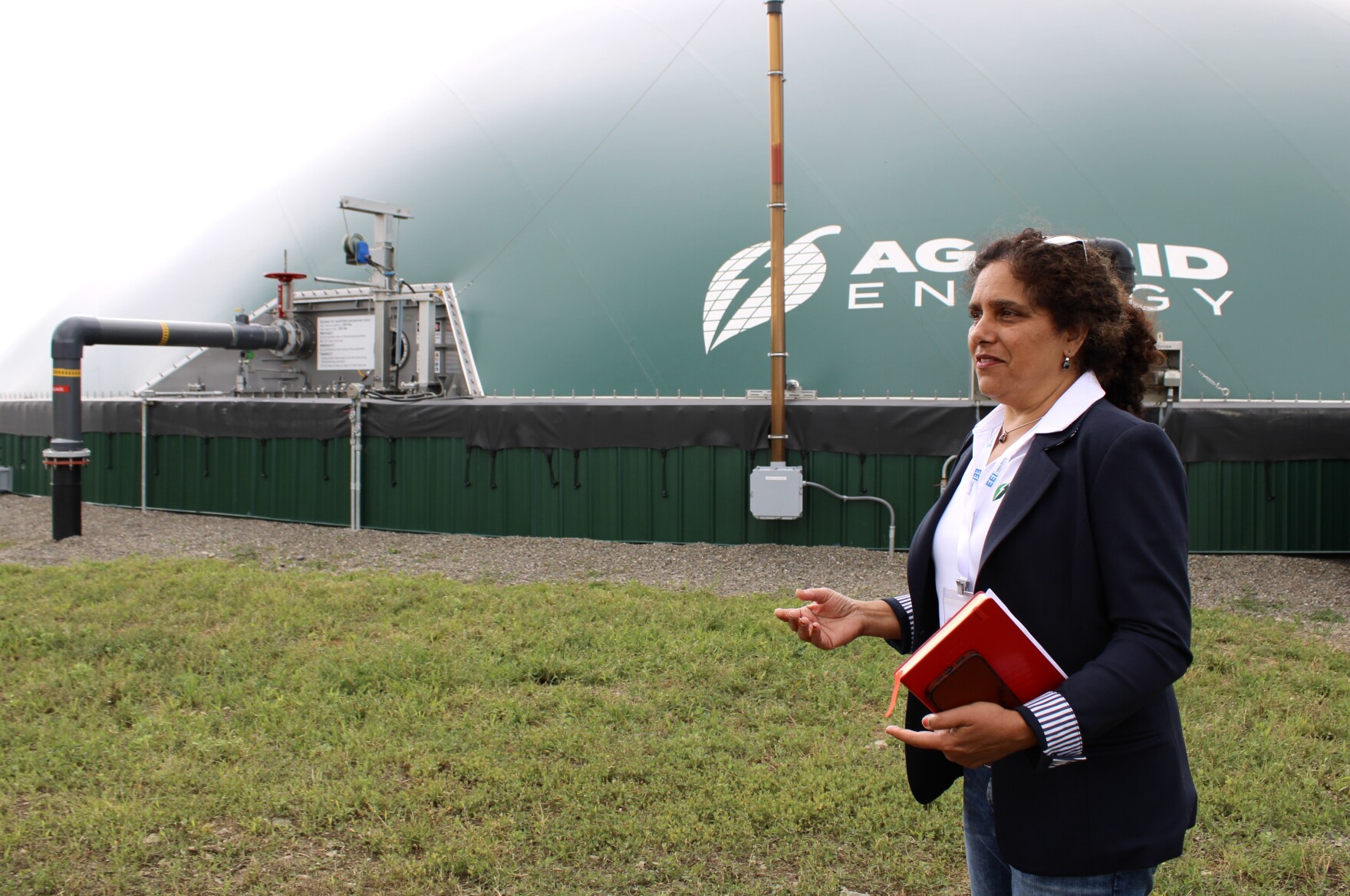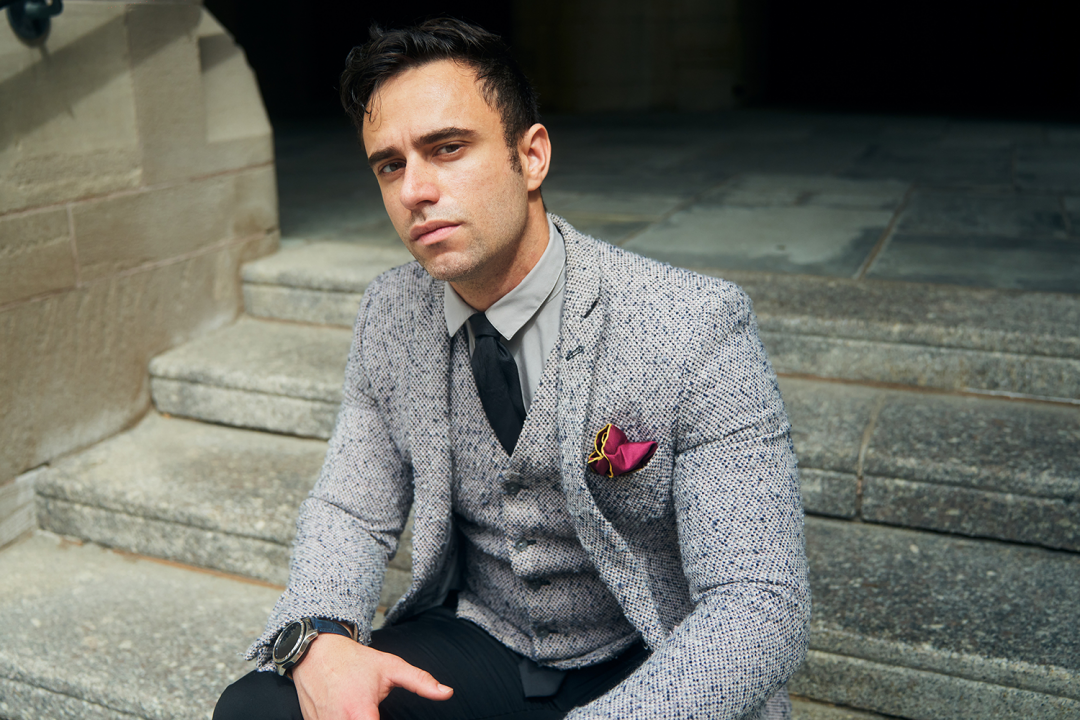Ed Johnetta Miller, a fiber artist, quilter, teacher, curator, and lecturer based in Hartford, is renowned as one of the most creative and colorful improvisational quiltmakers in the U.S. Widely exhibited in the U.S. and internationally, her quilts can be found in many important museums and corporate and private collections, including The National Gallery of the Smithsonian Institution in Washington, D.C.; Nelson Mandela’s National Museum in Cape Town, South Africa; Wadsworth Atheneum Museum of Art in Hartford; and the Rocky Mountain Quilt Museum in Golden, Colorado.
She is also a two-time breast cancer survivor.
Miller has always been consistent with getting her annual mammograms each year, and in 2000 the exam found calcifications that showed on her images. The calcifications were found to be in a non-invasive type of cancer, DCIS, that was removed via a lumpectomy and followed by radiation. She continued to remain vigilant in getting her mammograms, and in 2008 she was diagnosed with a new cancer, this time an invasive cancer in the same breast. She required a mastectomy and remained on antiestrogen therapy for 10 years. She has remained cancer-free since.
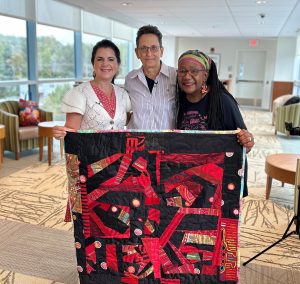
“I can’t stress enough the importance of going for regular checkups and getting a mammogram every single year, it’s just crucial to women of all colors,” says Miller.
“Ed Johnetta is an example of someone who did everything right and caught her breast cancer in both cases early,” says Dr. Susan Tannenbaum, Chief, Division of Hematology/Oncology, Carole and Ray Neag Comprehensive Cancer Center at UConn Health.
Black women are now 41% more likely to die from breast cancer than white women, despite a similar incidence of the disease. This is partly because Black women are more likely to be diagnosed with breast cancer at a later stage when it is harder to treat. This in addition to more aggressive types of breast cancer in Black women, make it important to go for these studies yearly.
“African American women get breast cancer at younger ages than white women and are diagnosed with more aggressive types of cancer,” says Tannenbaum. “It’s important that women know their body and their family history and begin getting their yearly mammograms starting at 40 years old.”
The cancer diagnosis was like a gut punch for Miller, who had no idea that there were several members of her family that had breast cancer until she and other relatives got together and started talking and connecting the dots.
“We need to talk about our medical history and cancer within our families because I found there was breast cancer and colon cancer in my family,” says Miller. “It’s something we just don’t talk about, which is why I start all my quilting lectures by telling the audience ‘I am a breast cancer survivor’.”
“When I was diagnosed, I was determined that cancer was not going to change my life, I have to move on and keep creating,” says Miller. “The things that got me through were the support of my family, especially my children and friends as well as having someone like Dr. Tannenbaum in my life, who cared about me and was concerned about not only me as Ed Johnetta, a breast cancer survivor but as the artist and person.”
A lifelong passion for art
Miller’s career started as a professional weaver, but for the past 30-plus years, quilting has been her passion.
Miller has been an artist her whole life and credits her aunt Dora, who saw a special spark in her. Doris taught Miller how to sew and crochet and would go to the Rhode Island School of Design to see tapestries. Miller was a weaver for 20 years and started several weaving programs throughout Hartford, eventually founding the Hartford Artisan Center. She was invited to a quilt exhibition in Ohio and made a small, quilted sleeve that she put on the back of some walking sticks she had just brought back from Africa. She received international recognition for that piece, including from renowned independent curator Carolyn Mazloomi, who told Miller she had the best sense of colors that she’d ever seen and invited her to join the Women of Color Quilters Network offering to be her mentor. Her quilting took her in a new direction with exhibitions throughout the world.
With a cancer diagnosis, she dove into her art even more to soothe her and get her into a creative mode. She started producing and studying other artists doing different kinds of creative and innovative art projects.
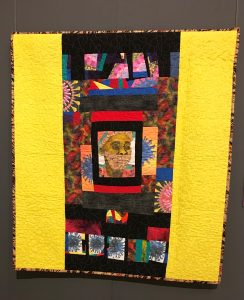
It’s through her quilts that she tells stories, and Miller’s breast cancer quilt was inspired when she met a woman at the mammogram center at UConn Health several years ago. As she tells the story: “It was during the pandemic, and another woman and I were awaiting our mammography results and we started talking. She was very nervous and like me was a two-time breast cancer survivor. She was telling me how she doesn’t get to see her family because of the pandemic. She was wearing her mask and it was underneath her nose, so I told her, ‘You know in order for you to have protection you need to put it over your nose.’ As we sat and spoke on many topics, I could see the sadness in her eyes because she really missed her family. When they came out and gave her the results her dial-a-ride bus was there and she said, ‘Well girl, thank you so much for talking to me.’ I never got her name. When I came home, I visualized her face and the sadness in her eyes, I sketched her picture and then I put it into a quilt.”
The quilt signifies hope and is a drawing that Miller created of the woman’s face, with the mask under her nose and her sad eyes. It is surrounded in bright yellow exemplifying a ray of hope and that there is always light at the end of the tunnel. The quilt was part of an International Quilt Exhibit in Nebraska and was acquired by the Smithsonian Museum of Art.
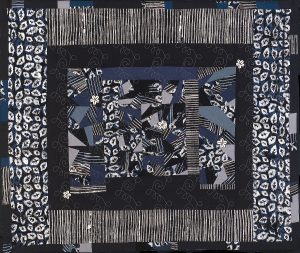
Whenever Miller gives lectures, she starts with the story of her breast cancer survivorship and how it motivated her to continue to be creative. Every time she is approached by another woman who will tell her they are sisters in breast cancer survivorship, and that they are motivated by her story. Others she hopes will hear the message of the importance of early detection and schedule their mammogram or start a conversation with their family.
“It’s important for me to share my story, I talk about my art, my life, my creativity, my inspirations, and who was the person to motivate me to become Ed Johnetta Miller the artist. I then talk about how being a breast cancer survivor has pushed me into a whole other realm of my art,” says Miller. “I want to bring hope to people who are out there and feeling like they’re alone and let them know there is support for them.”
Early detection is critical for finding breast cancer at early stages, which saves lives. UConn Health offers the latest FDA-approved technology that creates 3D breast images that help doctors detect breast cancer even earlier than previously possible. Now scheduling your screening mammogram is even easier; call 860-679-2784 or book online through MyChart. To learn more about Ed Johnetta Miller and her artwork you can visit her website.
